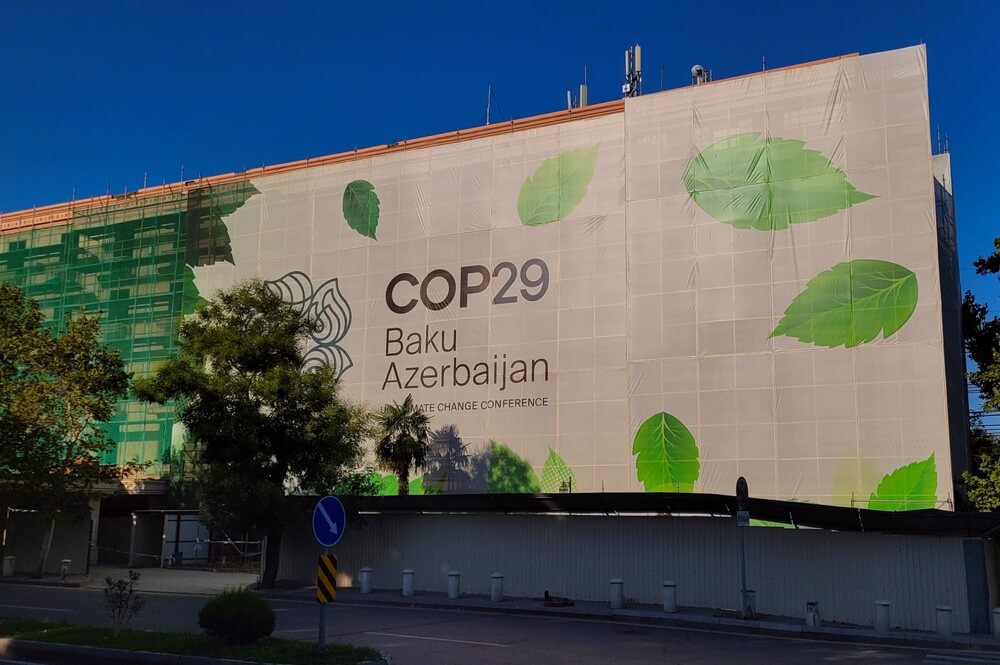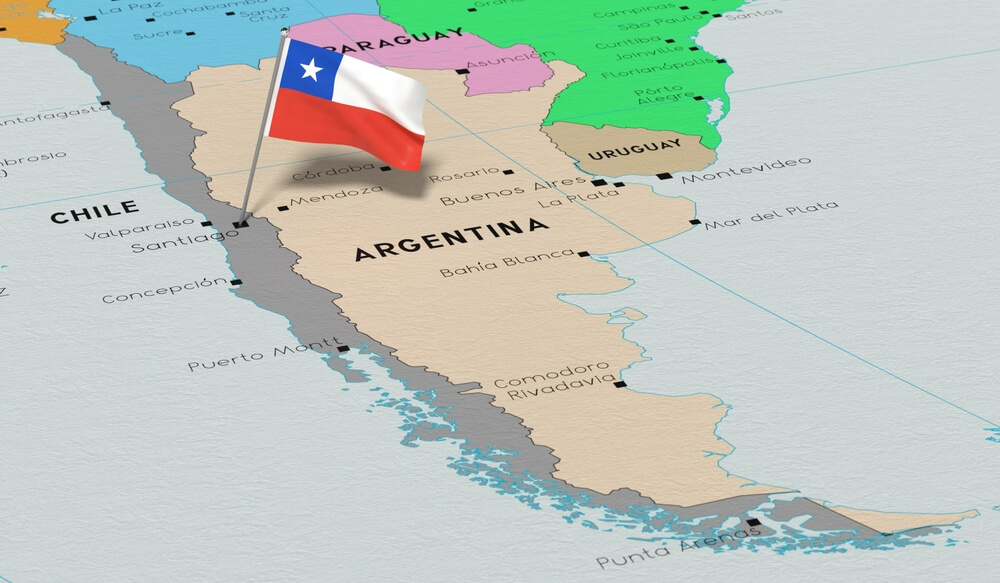Hi there, Agent of Impact! Welcome to ImpactAlpha Open, your free weekly edge in impact investing.
🎉 Thanksgiving savings for you: 1 year for $99. ImpactAlpha’s Thanksgiving sale is in full swing. Upgrade to an all-access subscription to get our daily impact investment briefing, join our vibrant Slack community, and participate in subscriber-only Calls. Take 75% off.
In this week’s Open:
- The promise and peril of COP29
- Catalytic warehousing for emerging climate investors
- The Call: Agents of Impact lean into economic populism
- Finding Alpha: Jim Sorenson on why the best is yet to come
Let’s dig in. – Dennis Price
Must-reads on ImpactAlpha
- COP29’s meager agreement on climate financing. In the end, the global climate summit known as COP29 lived up to its low expectations, reports ImpactAlpha’sAmy Cortese. The “finance COP” had been charged with rallying vastly greater financing for climate mitigation and adaptation in less developed countries by the more-developed nations responsible for the bulk of greenhouse gas emissions. An agreement reached by negotiators in the wee hours Sunday to triple such climate financing, from $100 billion to $300 billion per year, was a bitter compromise; small island states and lower-income countries, primarily in the Global South, had sought more than $1 trillion a year in funding. Catch up quickly.
- Investment models for climate-vulnerable nations. Impact investors didn’t have a direct seat at the negotiating table. But Agents of Impact worked back channels to elevate private investors’ role in ushering capital where it’s most needed. “We don’t have time to wait for these larger global commitments to crystallize and for clarity on what needs to be done for the ‘real’ funding to materialize,” Acumen’s Ayesha Khan tells ImpactAlpha’s Jessica Pothering. “We have to act now.” Behind the scenes.
- Investment models for climate-vulnerable nations. Impact investors didn’t have a direct seat at the negotiating table. But Agents of Impact worked back channels to elevate private investors’ role in ushering capital where it’s most needed. “We don’t have time to wait for these larger global commitments to crystallize and for clarity on what needs to be done for the ‘real’ funding to materialize,” Acumen’s Ayesha Khan tells ImpactAlpha’s Jessica Pothering. “We have to act now.” Behind the scenes.
- Catalytic warehousing. Using flexible, catalytic capital to enable emerging impact fund managers to gain traction and credibility, by making investments and “warehousing” them before their funds have closed “could have an outsized impact toward closing the investment gap, because it would help to establish more SDG-focused investment intermediaries and attract larger sums of capital,” a half-dozen fund managers argue in a guest post and call to action on ImpactAlpha. Read their proposal.
- The business case for regulating deforestation. This month, more than 50 major food and confectionery companies urged the European Union to advance a landmark law aimed at preventing deforestation in commodity supply chains. Why? To create clear rules of the road. Set to go into effect at the end of the year, the European Parliament instead delayed the European Union Deforestation Regulation, or EUDR. “The EUDR was poised to be a turning point for forests, climate action, and sustainable markets,” writes Canopy’s Nicole Rycroft in a guest post. Check it out.
- Private investors warm to small investments in Africa. The lion’s share of private capital in Africa goes to just a handful of countries. XSML has spent 15 years pushing more private investors into a broader set of markets, reports Lucy Ngige. The Netherlands-based fund manager takes small equity shares and provides mezzanine and debt financing to small and medium-sized businesses in Angola, Zambia, Uganda and the Democratic Republic of the Congo. “There’s more impact money, a bit more private capital, and a bit more local money,” says XSML’s Barthout van Slingelandt. Read more.
- Defending long-term value amid political backlash. We’ve been here before. “In this moment of heightened tension, responsible investors must be mindful and recall how much collective power they have demonstrated in the face of similarly adverse circumstances,” write incoming Majority Action co-executive directors Bryant Sewell and Whitney Shepard in a guest post. This moment, they say, “demands more than passive resistance or strategic retreat. It demands bold action and forceful stewardship.” Hear them out.
- Bridging differences to build a thriving future. In a guest post, the Rippel Foundation’s Becky Payne and Tiffany Manuel of TheCaseMade offer guidance on how to bridge differences to build a thriving future. strategic casemaking and shared stewardship. “If we invest in these practices now, particularly in underserved communities with the most to gain, we’ll be able to put solutions in place faster and get to the better, more thriving future we all want within a generation,” they write. See how.
The Week’s Call
🗣️ Agents of Impact lean into economic justice (video)
The takeaway from two weeks of listening to Agents of Impact digest the results of the US election: It’s time to lean hard into economic justice and systemic change. The coming period will see the dismantling of longstanding systems that no longer are working. What will replace them? “We’ve been trying to edit these systems and make them better,” Adasina Social Capital’s Rachel Robasciotti said on last week’s Agents of Impact Call. “Half of the country has told us that the time for editing is over. It’s not working for them.”
- Systemic change. Impact investors have long seen wealth and income inequality as systemic risks “to our investment portfolios, and ultimately to society and democracy,” said Smitha Das of World Education Services, “and I think recent events have really seen that play out.” Other speakers included Candide Group’s Morgan Simon, Wilson Lester of Partners in Equity, and impact investing pioneer Antony Bugg-Levine.
- Read the recap and watch the replay on ImpactAlpha (and don’t miss the Call’s pre-read).
Agents of Impact
🏃🏽♀️ On the move
- Majority Action’s Whitney Shepard and Bryant Sewell are named co-executive directors of the shareholder advocacy group.
- Marcus Martin, previously with US Bank, joins Homium as chief impact officer.
- Social Finance hired Mary Santalla, previously with Citizens Financial Group, as an impact investment associate.
The Week’s Podcasts
🎧 This Week in Impact: New narratives for a new era
Host Brian Walsh takes up ImpactAlpha’s top stories with editor David Bank. Up this week: Highlights from the week’s Agents of Impact Call; how newly minted venture capitalist Donald Trump Jr. is using the forms of impact investing to target an underserved market – conservative consumers; and using catalytic capital warehousing to stand up emerging managers to meet the Sustainable Development Goals.
- Listen to the new episode of This Week in Impact. Get the podcast in your feed by subscribing on Apple or Spotify.
📈 Market Makers: James Veraldi on leveraging GenAI to drive positive social connection. Last year, Vivek Murthy, the US surgeon general, raised an alarm about the nationwide crisis of loneliness and isolation, in particular the epidemic of social anxiety and depression among youth. On the latest episode of Market Makers, hosts Troy Duffie and Lenore Champagne Bierne speak with James Veraldi of Scenario.ai, an app that uses generative AI and immersive visualization to help users combat social anxiety and isolation by practicing challenging social interactions. Veraldi struggled with loneliness and social disconnection in his own life. He hatched the idea for Scenario while leading product strategy at TikTok. Social anxiety and isolation, he says, is “a big problem that I felt I’ve played a hand – albeit a small one – in contributing to. And that was motivation.”
- Listen to the latestMarket Makers on ImpactAlpha or wherever you get your podcasts.
🦸 Finding Alpha: For Jim Sorenson and impact investing, the best is yet to come. This fall, the Sorenson Impact Institute moved into its new home at the University of Utah’s Impact and Prosperity Epicenter. The hub for social impact, community engagement and entrepreneurship also houses nearly 800 students. For the first in his series ofFinding Alpha podcast conversations, ImpactAlpha contributing editor Robert Brown spoke with founder Jim Sorenson about building an impact investing ecosystem. The Sorenson Impact Group also includes a foundation, investment advisory and asset management. The foundation moved to align its approximately $142 million in assets with its impact objectives. “And since that time, we’ve beaten the benchmarks by about 130 basis points,” Sorenson told Brown (disclosure: Sorenson Impact Foundation is an investor in ImpactAlpha).
- Read the recap and listen to Finding Alpha on the Agents of Impact podcast.
Get in the Game
💼 Step up
- Truist Community Capital is seeking an investment associate in Atlanta.
- Microsoft is looking for a senior sustainability finance manager in Redmond, WA.
- Chemonics International is hiring a senior specialist in carbon markets for a remote role.
Sign up to Impact Careers get the top impact investing job listings and internships right in your inbox. Register for free.
🤝 Meet up
Don’t miss these upcoming impact investing events:
- November 27-29: Impact Europe (Bilbao)
- December 3-5: SuperReturn (Cape Town)
- December 10: Private Equity Sustainability Practicum (New York)
Subscribe (with 75% off) to access substantial discounts on partner events.
Partner with us. Reach the most influential audience in impact investing. Get in touch.
Get ImpactAlpha for Teams. Save with substantial group discounts. Start here.












